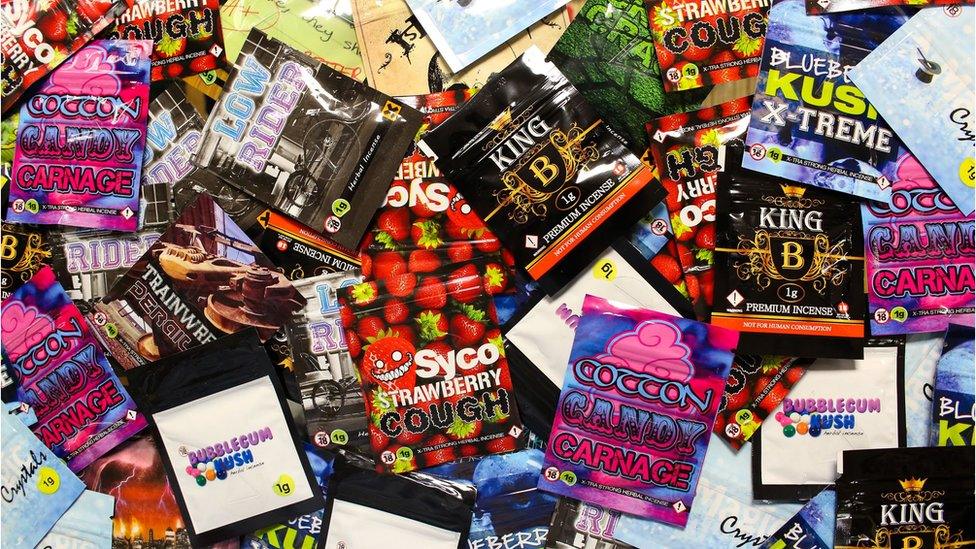Chemsex: Brits more likely to combine drugs with sex, survey finds
- Published

People in the UK are more likely to combine drugs with sex than those in the US, Canada, Australia or Europe, according to a survey.
It found Brits, younger people and those on higher incomes were more likely to have chemsex.
More than 22,000 people took part in the Global Drug Survey's research into substance-linked sex.
It found alcohol, cannabis, MDMA and cocaine are the drugs most commonly used.
Researchers say understanding people's drug use is important so that messages about the harm they can cause can be targeted to the way people live their lives.
"By engaging with your audience and accepting that drugs provide pleasure as well as harms, you can deliver harm reduction messages in a more trustworthy and nuanced manner," said lead author Dr Will Lawn.
Alcohol 'most popular'

The report found alcohol was the most popular drug.
Around 58% of men and 60% of women who took part in the survey said they'd drank before sex in the past year.
But it's not just booze that's being consumed before Brits get intimate.
The report states that people from the UK are most likely to have combined drugs such as cocaine, MDMA and mephedrone with sex.
It describes the Brit's use of mephedrone - also known as meow meow - with sex as "particularly striking".
Allow YouTube content?
This article contains content provided by Google YouTube. We ask for your permission before anything is loaded, as they may be using cookies and other technologies. You may want to read Google’s cookie policy, external and privacy policy, external before accepting. To view this content choose ‘accept and continue’.
The report said that while people of all genders and sexual orientations had chemsex - gay and bisexual men were "more likely to have done so".
It also found that "homosexual men were 1.6 times as likely as heterosexual men to have used drugs with the specific intent of enhancing the sexual experience in the last year".
Dr Lawn, from the University College London, said that while chemsex is often associated with gay men, the study found "men and women of all sexual orientations engaged in this behaviour".
"Harm reduction messages relating to substance-linked sex in general should therefore not only be targeted towards gay and bisexual men, as they are relevant to all groups."
'Regular testing important'

Marc Thompson, who leads health improvement at sexual health charity Terrence Higgins Trust, says combining drugs with sex can increase the chance of catching an STI.
"Drug use can lead to people taking risks during sex they wouldn't ordinarily take which increases the chances of contracting HIV and other sexually transmitted infections and why testing regularly is really important," he told Newsbeat.
"As this report highlights, drug use and sex is something that is not exclusive to gay and bisexual men but is something that happens across the wider population.
"Therefore it's vital that everyone knows the potential risks this can result in."
Who took part in the survey?
14,050 of the people who responded to the survey were men, 65% of which identified as straight, 8.7% were gay and 6.7% were bisexual.
6,419 were women. 77.4% of these were straight, 15% were bisexual and 8.7% were gay.
Some people didn't confirm their gender or sexuality.
The people who responded to the survey were "self-selecting rather than a representative sample", the research noted.
It means the number of people who said they combine drugs with sex will be "substantially larger than the general population".
"However, relative differences between groups are expected to be reliable," it added.
Follow Newsbeat on Instagram, external, Facebook, external and Twitter, external.
Listen to Newsbeat live at 12:45 and 17:45 every weekday on BBC Radio 1 and 1Xtra - if you miss us you can listen back here.
- Published26 January 2018

- Published7 April 2016

- Published14 July 2017
